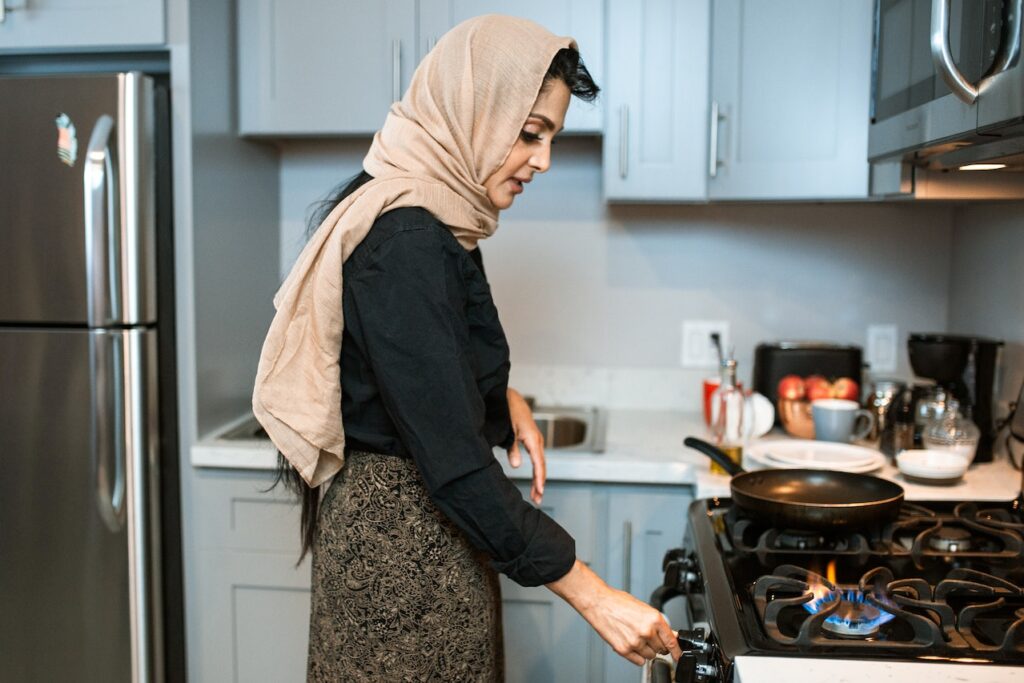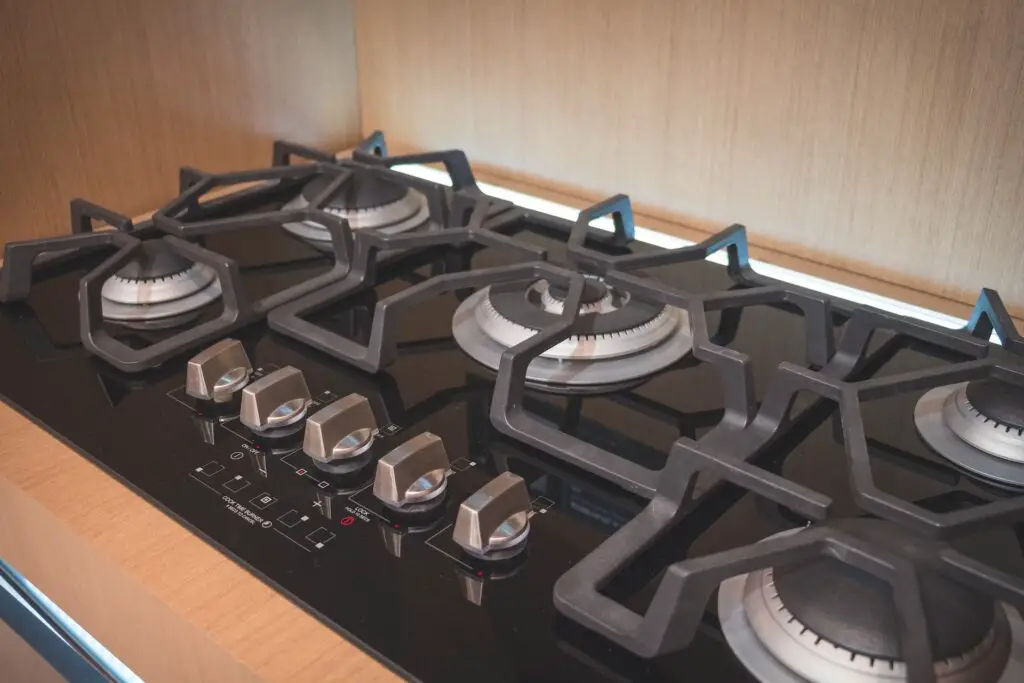In the realm of home buying, the choice between gas and electric stoves has been a longstanding debate. Homeowners and prospective buyers often find themselves torn between these two options, each offering its unique advantages and disadvantages. In this guide, we will delve deep into the preferences of home buyers when it comes to stoves, exploring the factors that influence their choices.
So, suppose you’re in the market for a new home or planning to sell your property. In that case, understanding this crucial aspect can make a significant difference.
Table of Contents
The Heart of the Home: The Kitchen

The kitchen is often considered the heart of any home. It’s a place where families come together to prepare and share meals, and it plays a pivotal role in influencing the overall appeal of a house. When buyers step into a kitchen, they want to envision themselves cooking, entertaining, and creating memories. The choice of stove plays a vital role in this visualization.
Do Home Buyers Prefer Gas or Electric Stoves?

One of the first questions potential home buyers ask is whether they prefer gas or electric stoves. While there’s no definitive answer, let’s break down the pros and cons of each option to help you make an informed choice.
Pros of Gas Stoves
Gas stoves offer precise temperature control, making them a favorite among professional chefs and cooking enthusiasts. Here are some of their advantages:
Precise Temperature Control: Gas stoves heat up and cool down quickly, allowing for precise cooking adjustments.
Even Heat Distribution: The flames provide even heat distribution, reducing the risk of unevenly cooked food.
Cost-Efficiency: Natural gas tends to be cheaper than electricity in many regions.
Reliability: Gas stoves can still function during power outages, a crucial consideration for some homeowners.
Cons of Gas Stoves
While gas stoves have their merits, they also come with some downsides:
Initial Cost: Gas stoves are often more expensive to install initially.
Safety Concerns: There’s a risk of gas leaks and open flames, which can be hazardous if not handled properly.
Pros of Electric Stoves
Electric stoves have their own set of advantages that appeal to different home buyers:
Ease of Cleaning: Electric stoves typically have smooth, flat surfaces that are easy to clean.
Lower Initial Cost: They are often more affordable to install.
Safety: Electric stoves eliminate the risk of gas leaks and open flames.
Energy Efficiency: Some models are highly energy-efficient, reducing long-term operating costs.
Cons of Electric Stoves
Electric stoves also have their drawbacks to consider:
Slower Heating and Cooling: Electric stoves may take longer to reach the desired temperature and cool down.
Less Precise Control: Temperature adjustments can be less precise than with gas stoves.
Limited Functionality During Power Outages: They rely on electricity, making them unusable during power cuts.
1. Energy Efficiency and Operating Costs
Gas Stoves:
Gas stoves have long been favored for their quick heating capabilities and precise temperature control. When you turn the knob, you get an instant flame that heats your cookware evenly. This rapid response time is a dream for chefs and home cooks who appreciate the ability to adjust temperatures on the fly. Moreover, gas is often more cost-effective in regions where natural gas prices are low.
However, it’s important to consider that gas stoves may have a higher upfront cost due to installation requirements. Additionally, their efficiency can vary depending on the quality of the stove and its age. Older models may not be as energy-efficient as newer ones, which could lead to higher operating costs over time.
Electric Stoves:
Electric stoves, on the other hand, are known for their consistent and even heating. The electric coils or ceramic glass cooktops provide a smooth cooking surface that’s easy to clean. Modern electric stoves often feature advanced technologies such as induction cooking, which is incredibly energy-efficient and allows for precise temperature adjustments.
In terms of operating costs, electric stoves can be more cost-effective in regions with high natural gas prices. However, they may take slightly longer to heat up compared to gas stoves.
2. Cooking Performance and Flexibility
Gas Stoves:
Professional chefs favor gas stoves for a reason. The open flame allows for immediate heat adjustment, making it ideal for techniques that require quick temperature changes, such as sautéing and stir-frying. The visible flame also provides a visual cue, making it easier to monitor your cooking.
Furthermore, gas stoves are less reliant on the type of cookware you use. They work well with a wide range of pots and pans, including cast iron and copper cookware, which can be challenging to use on electric stoves.
Electric Stoves:
Electric stoves, especially induction cooktops, offer precise temperature control and even heating. They excel at tasks like simmering and melting, where maintaining a consistent temperature is crucial. Induction cooktops are known for their fast heating and cooling, which can be a time-saver in the kitchen.
However, electric stoves may not be as responsive as gas stoves when it comes to quick temperature changes. The lack of an open flame can also be a drawback for those who prefer the visual cue of gas flames.
3. Safety Considerations
Gas Stoves:
While gas stoves are generally safe when properly maintained, they do come with a few safety considerations. The open flame poses a fire hazard, and there is a risk of gas leaks if the appliance is not installed correctly or if there are damaged gas lines. It’s essential to have regular inspections to ensure safety.
Electric Stoves:
Electric stoves, particularly induction cooktops, are considered safer in some respects. There’s no open flame, reducing the risk of kitchen fires. Additionally, induction cooktops only generate heat when there’s cookware on the surface, minimizing the risk of burns.
4. Environmental Impact
Gas Stoves:
The environmental impact of gas stoves largely depends on the source of the gas. Natural gas, for example, is a fossil fuel, and its extraction and consumption contribute to greenhouse gas emissions. However, advancements in technology have led to more energy-efficient gas stoves that produce fewer emissions.
Electric Stoves:
Electric stoves can be considered more environmentally friendly, especially if your electricity comes from renewable sources. Induction cooktops, in particular, are highly efficient and reduce energy waste.
5. Aesthetics and Kitchen Design
The choice between gas and electric stoves can also affect the aesthetics of your kitchen. Gas stoves often have a classic and timeless look, with visible flames that can add a touch of warmth and authenticity to your kitchen’s design. Electric stoves, on the other hand, provide a sleek and modern appearance with their smooth glass surfaces.
The Buyer’s Perspective
The preference for gas or electric stoves largely depends on individual needs and lifestyles. Here are some common scenarios:
1. The Home Chef
For individuals who are passionate about cooking, gas stoves often win their hearts. The precise heat control and even cooking make it the preferred choice.
2. Safety-Conscious Families
Families with young children often opt for electric stoves for their safety features. The absence of open flames reduces the risk of accidents.
3. Aesthetics Matter
Buyers who prioritize the visual appeal of their kitchen may lean towards electric stoves for their sleek and modern designs.
4. Budget Constraints
Those on a tight budget may find gas stoves more appealing due to their lower operating costs.
Why Do Home Buyers Prefer Gas Stoves Instead of Electric Stoves?

Home buyers often prefer gas stoves over electric stoves for a few simple reasons. First, gas stoves are quick to heat up. When you turn the knob, the flames appear immediately, and you can begin cooking right away. This is great because nobody likes to wait around when they’re hungry! On the other hand, electric stoves take some time to warm up, and that can be frustrating for folks who want to whip up a meal in a hurry.
Second, gas stoves give you more control. You can adjust the flame to make it higher or lower, which helps when you’re cooking different dishes. It’s like having a magic wand for your pots and pans. Electric stoves, with their fixed heating elements, can’t offer this level of control. This control makes it easier to simmer sauces, boil water, or cook delicate foods without accidentally burning them.
Another reason people like gas stoves is that they work even during power outages. Suppose there’s a storm or an electrical problem. In that case, you can still make your favorite meals on a gas stove because it doesn’t rely on electricity. It’s like having a trusty backup plan for dinner, which can be a lifesaver in certain situations. Electric stoves, unfortunately, become useless without electricity.
Lastly, gas stoves are often seen as more energy-efficient because they deliver heat directly to the cookware, wasting less energy. When you use an electric stove, some heat gets lost in the process because it first has to heat the coil or element before it reaches your pot or pan. So, for many home buyers, gas stoves are not only practical but also more eco-friendly.
Do Gas Stoves Increase the Home Value?

Yes, gas stoves can make a home more valuable! It’s a bit like adding extra sprinkles to your ice cream cone – it makes it more special. When people are looking to buy a home, they often like to see a gas stove in the kitchen, and it can even make them willing to pay more money for the house.
One reason is that gas stoves are popular because they’re quick and easy to use. They can cook food faster, and many folks find them more reliable for cooking. So, if a house has a gas stove, it can be a big plus for potential buyers.
Another reason is that some people just love the idea of having a gas stove. They might dream about cooking their favorite meals on it or imagine themselves as great chefs. This makes them more excited about the house, and when people are eager, they might be willing to pay a little extra for it.
But remember, the increase in home value might not be super-duper big just because of a gas stove. Other things like the neighborhood, the size of the house, and its overall condition also play a big part in how much a house is worth. So, while a gas stove can make a home more valuable, it’s not the only thing that matters.
Do Gas Stoves Last Longer Than Electric Stoves?

Gas stoves and electric stoves both have their superpowers when it comes to lasting a long time in your kitchen. It’s kind of like a race between two speedy cars, and the winner depends on how you take care of them.
Gas stoves are like tough and sturdy superheroes. They usually have fewer parts that can go wrong, so that they can last a really long time, sometimes 15 to 20 years or even more! That’s like having a trusty sidekick who never gives up.
On the other hand, electric stoves have more parts, like those heating coils or elements you see on the top. These parts can wear out a bit faster, kind of like a superhero using up their powers. But if you treat them nicely and fix any problems quickly, they can also stick around for a good 13 to 15 years.
But here’s the secret sauce: it’s not just about what kind of stove you have; it’s about how you use and care for them. Regular cleaning, not overloading them with heavy pots, and fixing any issues as soon as they pop up can make both gas and electric stoves into kitchen superheroes that will help you cook up delicious meals for a long, long time. So, it’s not really about one being better than the other in terms of lasting longer – it’s all about the love and care you give to your kitchen buddy.
Conclusion:
In the great debate of gas vs. electric stoves, there is no one-size-fits-all answer. Home buyers’ preferences vary widely, influenced by their lifestyle, budget, and safety concerns. The best choice ultimately depends on what matters most to the individual or family. So, when it comes to choosing a stove for your home or listing one for sale, understanding these preferences can help you make a more informed decision.
FAQs
Are gas stoves more expensive than electric stoves?
Gas stoves are often more affordable to operate over time, but the initial purchase cost can vary.
Do electric stoves heat up slower than gas stoves?
Yes, electric stoves may take a bit longer to heat up compared to gas stoves.
Which stove type is more environmentally friendly?
Electric stoves are generally considered more environmentally friendly due to their energy efficiency.
Do gas stoves require more maintenance than electric stoves?
Gas stoves may require periodic maintenance to ensure safety and efficiency, whereas electric stoves generally have lower maintenance needs.
Will the choice of stove affect my home’s resale value
Yes, it can. Some home buyers have a strong preference for either gas or electric stoves, which can influence their decision to buy your home.



